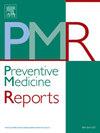Stressful life events, perceived degree of stress, and the risk of lung cancer
IF 2.4
3区 医学
Q2 PUBLIC, ENVIRONMENTAL & OCCUPATIONAL HEALTH
引用次数: 0
Abstract
Objective
We examined the experience of acute stressful life events and their perceived impact in relation to lung cancer incidence.
Methods
In a population based case-control study in Montreal, Canada, 1061 cases and 1422 controls (recruited 1996–2001) were queried on their experience of loss events (death of a family member, divorce/separation) and socioeconomic events (job loss, major income reduction, or a move to a new city) in the prior 6 years, and their own perceived stressfulness (impact) of the event. Using multivariable unconditional logistic regression, we estimated odds ratios (ORs) and 95 % confidence intervals (CIs) of lung cancer associated with experiencing at least one of the five individual events (“any stressful event”), “any loss event” and “any socioeconomic event”, and their impact.
Results
Experiencing “any stressful life event” in the previous 6 years was not associated with lung cancer, even when accounting for perceived impact. When considering event type, loss events suggestively increased lung cancer odds, particularly when perceived as high impact (OR = 1.84, 95 % CI: 0.97–3.49). Socioeconomic events did not increase lung cancer odds.
Conclusion
This study of recent stressful life events and their perceived impact contributes to knowledge on the possible role of psychosocial stress in lung cancer.
压力生活事件,感知压力程度,和肺癌的风险
目的探讨急性应激性生活事件的经历及其对肺癌发病率的影响。方法在加拿大蒙特利尔开展了一项以人口为基础的病例对照研究,调查了1061例患者和1422名对照者(1996-2001年招募)在过去6年中对损失事件(家庭成员死亡、离婚/分居)和社会经济事件(失业、主要收入减少或搬到新城市)的经历,以及他们对这些事件的压力(影响)的感知。使用多变量无条件逻辑回归,我们估计了肺癌与经历五种个体事件(“任何压力事件”)、“任何损失事件”和“任何社会经济事件”中的至少一种事件及其影响相关的比值比(ORs)和95%置信区间(ci)。结果:在过去6年里经历过“任何有压力的生活事件”与肺癌无关,即使考虑到感知的影响。当考虑事件类型时,损失事件提示增加肺癌的几率,特别是当被认为是高影响时(OR = 1.84, 95% CI: 0.97-3.49)。社会经济事件并没有增加肺癌的发病率。结论对近期生活压力事件及其感知影响的研究有助于了解心理社会压力在肺癌中的可能作用。
本文章由计算机程序翻译,如有差异,请以英文原文为准。
求助全文
约1分钟内获得全文
求助全文
来源期刊

Preventive Medicine Reports
Medicine-Public Health, Environmental and Occupational Health
CiteScore
3.90
自引率
0.00%
发文量
353
 求助内容:
求助内容: 应助结果提醒方式:
应助结果提醒方式:


